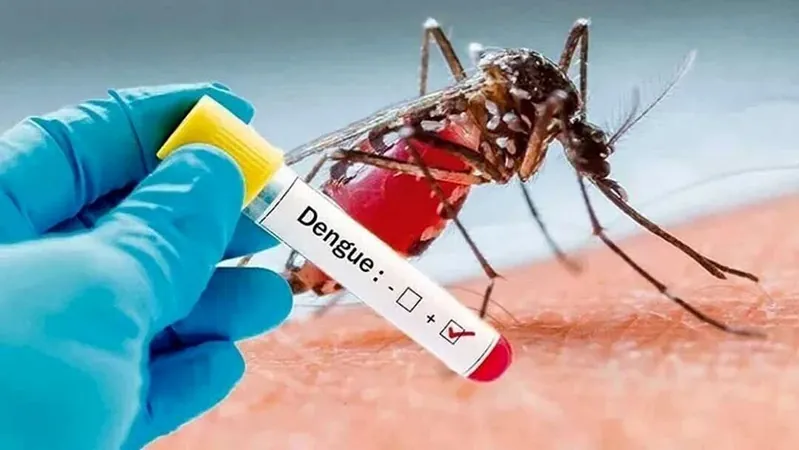
Over 940 Dengue Fever Cases Confirmed in Iran: What You Need to Know!
2024-12-15
Author: Jia
TEHRAN
Alarming reports from the health ministry indicate that Iran has recorded a staggering 945 cases of dengue fever so far this year. Of these, 746 infections were contracted within the country, while 197 cases involved individuals who became infected abroad, as disclosed by Qobad Moradi, an official from the health ministry.
Among the travel-related cases, two individuals from Chabahar were also diagnosed with Chikungunya, a disease sharing a similar transmission method, highlighting the urgent need for awareness and preventive measures against mosquito-borne illnesses.
Dengue Fever Overview
Dengue fever, a viral infection primarily transmitted by the Aedes aegypti and Aedes albopictus mosquitoes, has been a growing concern in many regions. These mosquitoes are notorious for transmitting not just dengue but also Zika and Chikungunya viruses. They thrive in stagnant water and can breed in various containers, making it critical for communities to eliminate potential breeding sites, including buckets, tires, flower pots, and any water-holding vessels.
Disease Progression and Symptoms
The disease progresses through distinct phases: fever, critical, and recovery, and its symptoms can emerge as early as two days before the fever sets in, making early detection important. Additionally, Aedes mosquitoes are prevalent in several Iranian provinces including Hormozgan, Sistan-Baluchestan, and Gilan.
Preventive Measures
Healthcare experts emphasize that Aedes aegypti is particularly invasive, so residents in affected areas are advised to wear protective clothing during dawn and dusk when mosquito activity peaks. The lifespan of these mosquitoes ranges from one to four weeks, during which they can consume blood multiple times, significantly increasing the risk of transmission.
Interestingly, between 40% to 80% of dengue fever cases exhibit mild or no symptoms, yet by following proper sanitation practices, the number of cases can potentially be reduced by as much as 70%.
Treatment Recommendations
In the absence of a specific antiviral treatment for dengue, the World Health Organization (WHO) stresses the importance of managing symptoms—acetaminophen is often recommended, while non-steroidal anti-inflammatory drugs such as ibuprofen and aspirin are advised against, as they may elevate bleeding risks.
Conclusion
To safeguard against dengue, individuals are encouraged to adopt preventive measures, such as applying mosquito repellent, installing window screens, and ensuring that their environment is free of mosquito breeding grounds. Health authorities underscore that staying vigilant is key to combating this growing health crisis.
Stay informed and proactive—mosquitoes are more than just a nuisance; they are a real threat to public health!


 Brasil (PT)
Brasil (PT)
 Canada (EN)
Canada (EN)
 Chile (ES)
Chile (ES)
 España (ES)
España (ES)
 France (FR)
France (FR)
 Hong Kong (EN)
Hong Kong (EN)
 Italia (IT)
Italia (IT)
 日本 (JA)
日本 (JA)
 Magyarország (HU)
Magyarország (HU)
 Norge (NO)
Norge (NO)
 Polska (PL)
Polska (PL)
 Schweiz (DE)
Schweiz (DE)
 Singapore (EN)
Singapore (EN)
 Sverige (SV)
Sverige (SV)
 Suomi (FI)
Suomi (FI)
 Türkiye (TR)
Türkiye (TR)